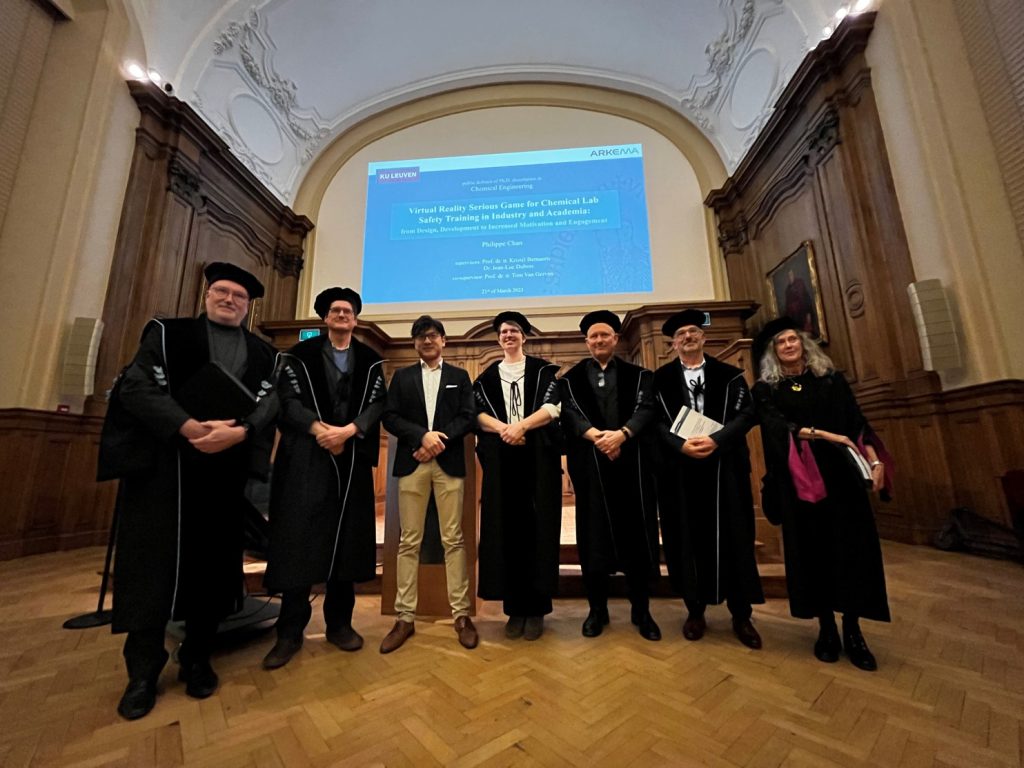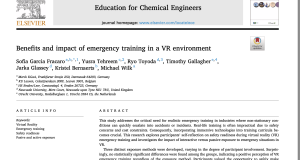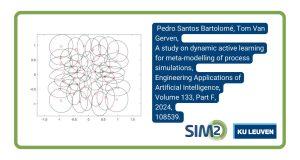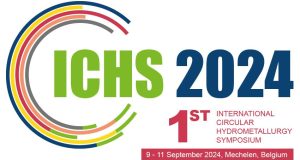On Tuesday 21st March, and in the beautiful Promotiezaal of KU Leuven, Philippe Chan (ESR11 of EU H2020 MSCA ITN CHARMING) has successfully defended his thesis entitled “Virtual Reality Serious Game for Chemical Lab Safety Training in Industry and Academia: from Design, Development to Increased Motivation and Engagement”. 3 years of research at ARKEMA (France) under the supervision of Dr. Jean-Luc Dubois while enrolled in a PhD programme at KU Leuven (Belgium) under the supervision of Prof. Kristel Bernaerts and Prof. Tom Van Gerven, Philippe has achieved his goal.
“This journey was particularly challenging for me because it was extremely interdisciplinary! I really had to go out of my comfort zone. As a chemist, I have learned how to make a game design, develop a complete VR game, performed research on instructional design and motivational psychology. With great motivation and dedication, I have surpassed these challenges and earned my title of Doctor of Philosophy (Ph.D.) in Chemical Engineering. I believe that in one’s journey to success, people have to be fluid and open to learn new things outside their own field” Philippe describes his PhD journey.

Abstract
Chemical laboratories are workplace environments where risks of injury and even fatality are always present. Laboratory workers, in academia and industry, are required to have proficient safety awareness in order to minimise risk to an acceptable level. However, insufficient safety training is often identified as one of the causes for these accidents. Commonly, safety training interventions are given by means of conventional teaching methods, such as classroom lectures, videos and printed manuals. However, with these methods, trainees are required to listen to the instructor or read long textual paragraphs. They are passive in their learning process and can lose their attention quickly when they are not motivated, thus making the safety training ineffective. Virtual reality (VR) technology can be used as a hands-on training tool to simulate dangerous situations in a virtual environment where trainees can train their safety awareness without causing real harm to themselves or others. A combination of this technology with a serious game approach could make safety training more motivating and engaging than conventional training methods.
Therefore, this doctoral research project exploits immersive virtual reality technology to fully immerse the learning in a virtual laboratory environment, where laboratory safety is trained without putting the learner in danger. In particular, this research wants to obtain a better understanding of the motivation and engagement of employees following safety training in an immersive VR environment. The main objectives of this research are: (i) to formulate design guidelines for VR serious games on lab safety training, (ii) to implement these in the development of such game, and (iii) to verify if increased motivation and engagement can be expected with this immersive training method.
The outcomes of this thesis are two-fold: 1) a set of guidelines are demonstrated about the design, development and implementation of VR serious games for safety training, and 2) a functional artefact is created to teach lab safety awareness. With the use of this artefact, it has been proven that VR serious games increases the intrinsic motivation and engagement of trainees for safety training. However, before fully deploying VR training programmes, consideration must be taken into account to let people familiarise with VR technology.
The PhD thesis along with a list of Philippe’s’s publications are available below:
- PhD thesis entitled “Virtual Reality Serious Game for Chemical Lab Safety Training in Industry and Academia: from Design, Development to Increased Motivation and Engagement”.
- S. Garcia Fracaro, P. Chan, T. Gallagher, Y. Tehreem, R. Toyoda, K. Bernaerts, J. Glassey, T. Pfeiffer, B. Slof, S. Wachsmuth, M. Wilk, Towards design guidelines for virtual reality training for the chemical industry, Education for Chemical Engineers , Volume 36, July 2021, 2021, Pages 12-23, DOI:https://doi.org/10.1016/j.ece.2021.01.014
- P. Chan, T. Van Gerven, J-L. Dubois, K. Bernaerts, Virtual chemical laboratories: A systematic literature review of research, technologies and instructional design, Computers and Education Open, volume 2, 2021, DOI:https://doi.org/10.1016/j.caeo.2021.100053
- P. Chan, T. Van Gerven, J-L. Dubois, K. Bernaerts, Design and Development of a VR Serious Game for Chemical Laboratory Safety, 10th Games and Learning Alliance Conference (GALA 2021), 2021, 23-33, DOI:10.1007/978-3-030-92182-8_3






